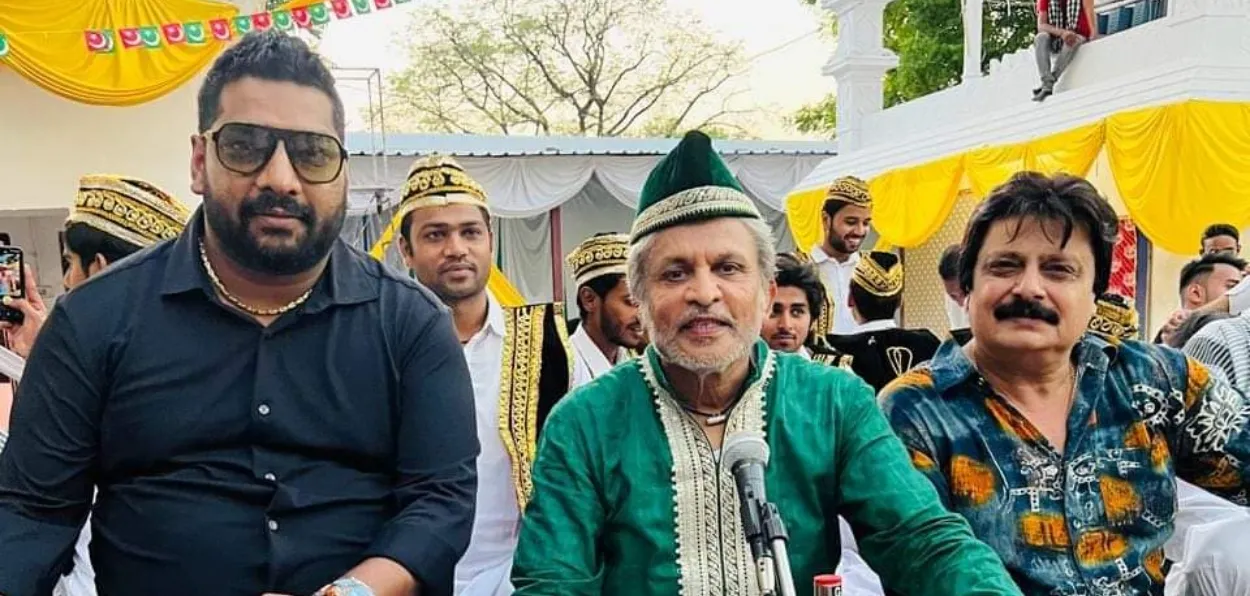
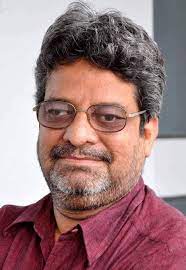 Ajit Rai
Ajit Rai
After Payal Kapadia's film All We Imagine As Light was selected for the main competition section of the Cannes Film Festival, many young Indian filmmakers descended into this beautiful French city. They are too busy manning the outlets at the India Pavilion, Cannes Film Bazaar Indian Motion Pictures Producers Association (IMPA), Confederation of Indian Industry (CII), etc.
Despatch from Cannes
The enthusiasm of young cinema talent also comes from the fact that this time the films of 10 Indian filmmakers are in the official selection of the Cannes Film Festival. Kamal Chandra's very first film Hamayre Barah (Our 12) has garnered a lot of praise for its unique content. The film delves into a sensitive subject of which interpretation of the religion of Islam is correct.
The film raises questions like whether Islam has different standards for men and women. The protagonist of the film is a faithful Muslim, bound by his religious beliefs. Life did not allow him to know, understand, and adopt the progressive traditions of Islam as he only studied from clerics.
Therefore he is not the villain of the film. His wife dies during the birth of their twelfth child as he didn't believe in limiting his family due to his religious beliefs. He gets into a monologue at her grave and he admits that he never got the chance to learn anything new about Islam. At this stage, his wife Rukhsana's voice "I became free by dying but there are many women who continue to live in pain," touched many hearts.
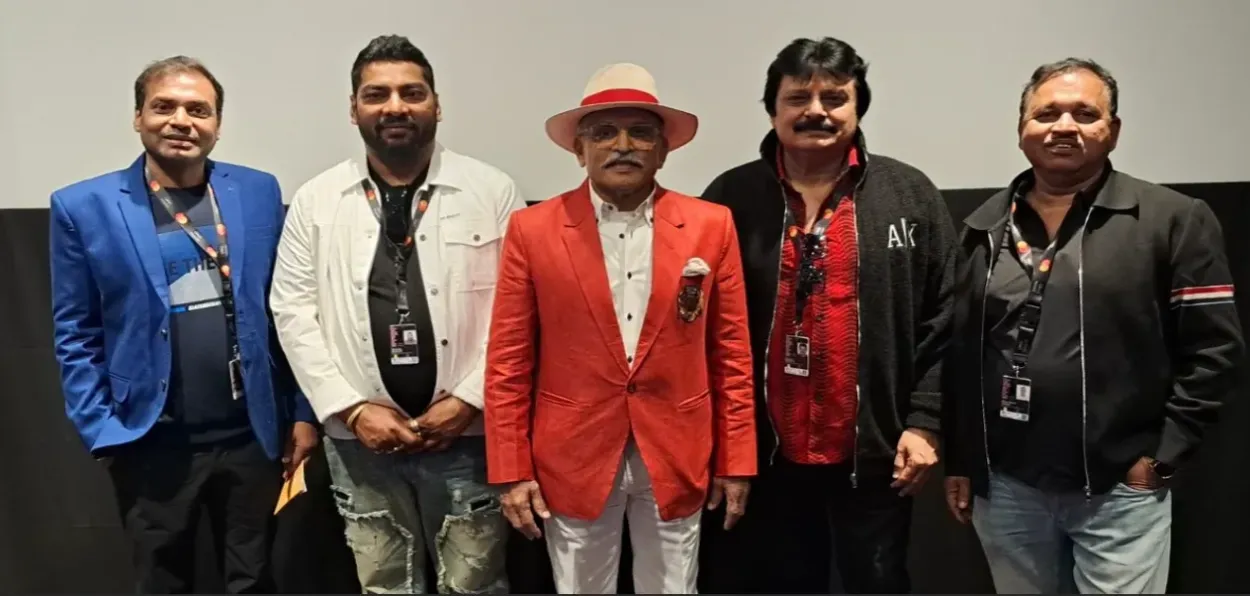 Actor Annu Kapoor and other members of the team Hamnare Barah at the Cannes Film Festival
Actor Annu Kapoor and other members of the team Hamnare Barah at the Cannes Film Festival
Besides Annu Kapoor, Manoj Joshi is also in Hamere Barah. The film has its world premiere at the Cannes Film Bazaar. On this occasion, the film's lead actor Annu Kapoor, director Kamal Chandra, producers Sanjay Nagpal, Virendra Bhagat, and Shiv Balak Singh gave detailed information about the film.
Hamnare Barah was also discussed in the Bharat Pavilion. The makers had named this film as Hum Do Hamare Barah, but due to pressure from the censor board, it had to be changed to Humare Barah. On the surface, it may seem that this film directly blames the Muslim community and this community is solely responsible for increasing the population of the country, but later on, many poignant stories emerge and the storyline steers clear of hurting the sentiments of any community.
Film's producer Virendra Bhagat says that all the characters of the film are Muslims, hence it is not appropriate to see the Hindu-Muslim angle in it. Sanjay Nagpal says that population growth is a global issue that has been raised through a poignant story.
After the Cannes Film Festival, the film is to be premiered in London and Dubai. Ravi Gupta, one of the producers of the film, says that the film will be released in India and overseas on June 6 and only then the reaction of the audience will be known. Shiv Balak Singh asserts that in no way the film will end up hurting the sentiments of Muslims.
Annu Kapoor says that Muslim society may not be ready to tolerate the truth. Annu Kapoor has acted so brilliantly that he seems to have lost himself to the personality of her reel character Qawwal Mansoor Ali Khan Sanjari of Lucknow.
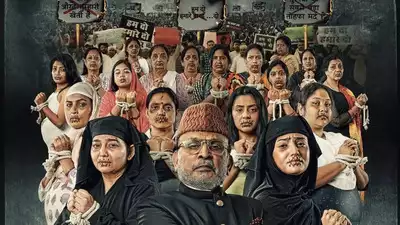 Another poster of Hamarey Barah
Another poster of Hamarey Barah
Manoj Joshi has also done a wonderful job in the role of a Muslim lawyer. The story is of the 60-year-old Mansoor Ali Khan Sanjari, a Qawwali singer of Lucknow, who has sired 11 children. His first wife dies after giving birth to six children.
He re-marries Rukhsana, who is 30 years younger than him. She bears him five children. Rukhsana becomes pregnant for the sixth time. Khan Saheb proudly says, “If there is a census next year, there will be two of us in this house and twelve of us.” Not only this, he does not send any of his children to school or college.
They silence everyone by citing Islam, Hadith, Sharia, God, etc. in every matter. They have neither studied themselves nor allowed their children to study in government and non-government schools. His elder child's family falls apart because of his stubbornness. The younger son becomes an auto driver. The second daughter is secretly selected as Super Singer, but they do not let her go to the final citing Islam. They have interpreted Islam as their convenience.
Problems arise when the lady doctor announces that Rukhsana must go through an abortion since her life is at risk if she delivers the child. Khan's elder daughter Alfia musters courage and files a case in the Uttar Pradesh High Court demanding that her stepmother be allowed to abort the baby.
From this point, the film takes a turn. During the hearing of the case, many heart-wrenching stories come to light. Due to the religious fanaticism of the head of the household and arbitrary interpretation of Islam, Lakhs of Muslim women feel suffocated.
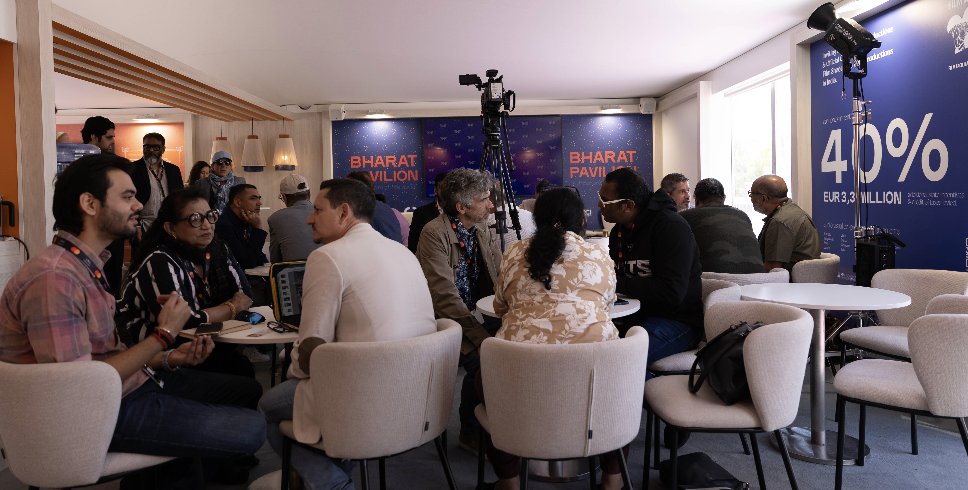 Scene at Bharat pavallion at the Cannes International Film Festival
Scene at Bharat pavallion at the Cannes International Film Festival
Although Hindus are also not untouched by this problem, the film here talks only about the Muslim community. Khan's daughter Alfia also raises the issue of upbringing in her petition. There is no overt violence in the film, but the sobs of women bleeding from the whip of patriarchal exploitation and oppression can be heard.
The children tell Khan: "We wanted love from you; You gave us rule."
Khan replies: "I love only Islam."
Many scenes of the film are tear-jerking. When Rukhsana's diary is read in the court, or when Siraj, husband of Alifia's lawyer Afreen, emotionally blackmails her to withdraw the case, or when one of Khan's sons says that he gave a kettle to sell tea in exchange for a pen, the audiences thin as why all this is happening in 21st century India.
The film Hamayre Barah is a family film that everyone should watch. Without hurting religious sentiments, director Kamal Chandra has used emotional melodrama to express his views clearly. The dialogue and editing is tight. The pace of the film does not slow down even for a moment.
ALSO READ: Naseeruddin Shah graces Cannes red carpet for 'Manthan' screening
The film begins with the speech of an Islamic religious leader who is inciting Muslims against women. He says that women are the crops of men. They should produce as many children as possible for their husbands and take care of them. The surprising thing is that lawyer Memon, who is Khan’s advocate, does not practice what he is defending in court. He has two children who are pursuing engineering and medicine. Even though Hamare barah is on Muslim society, everyone needs to learn a lesson from it.
